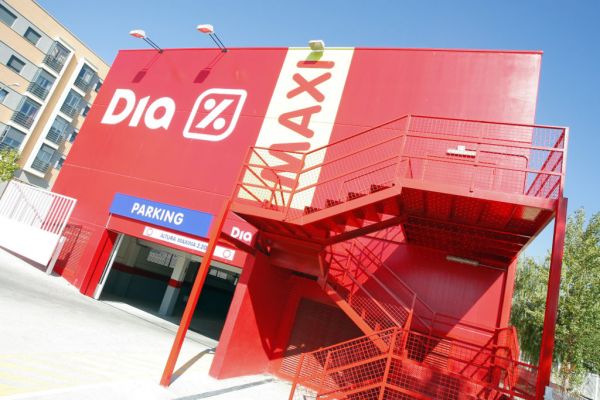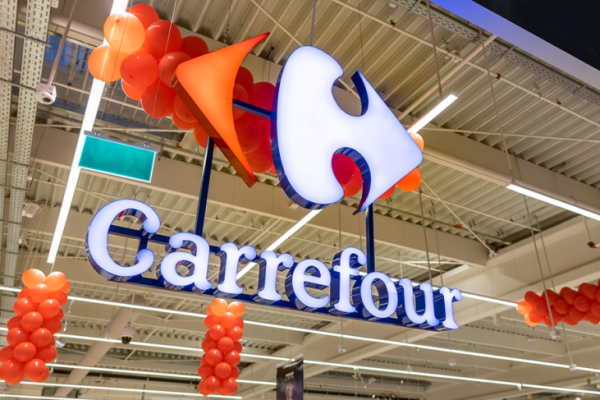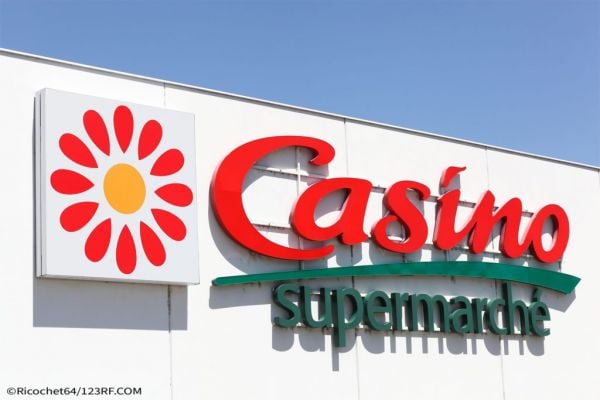Spanish discount grocer Dia warned that the rising euro will deflate food prices through next year, joining companies in businesses ranging from apparel to alcoholic drinks in citing headwinds from the currency’s strength.
CEO Ricardo Curras said he will highlight his concerns about the euro when the company updates analysts next month. While downward pressure on prices might help cash-strapped consumers, it erodes retailers’ profit margins.
“We see prospects of lower inflation if we continue with the same level of euro-dollar exchange,” Curras said in an interview. “The euro is more and more expensive against the dollar and many food and drugstore products are indexed in dollars. That is concerning for the future.”
The grocer, whose full name is Distribuidora Internacional de Alimentation, joins fellow Spanish retailer Inditex in noting the risks of the euro’s 14% appreciation against the dollar this year. The parent of the Zara clothing chain said Wednesday that the currency’s strength was reducing the value of overseas sales, as profitability reached an eight-year low. Luxury-goods companies Hermes, Prada and Richemont, as well as French distiller Pernod Ricard, have all recently warned of foreign-exchange challenges.
Market Share
Dia - Spain’s third-largest grocer, with an 8.5% market share, according to Kantar Worldpanel - has polarised investors as it wrestles with challenges ranging from the euro to the rise of online shopping. It briefly became the most-shorted stock in the Stoxx Europe 600 index this summer as hedge funds bet on a slump. Short interest has fallen by half, to 13%, after the company gained a new backer in Russian billionaire Mikhail Fridman, who disclosed a 10% stake in July.
As Amazon’s acquisition of Whole Foods upends the industry, Dia expects a boost from its partnership with the US e-commerce giant. Online sales, currently about 1% of DIA’s total revenue in Spain, will roughly double next year, Curras said. The alliance accounts for less than 20% of DIA’s online sales, he said, but it’s boosting sales around Barcelona and Madrid, where e-commerce is more advanced than in the rest of Spain.
“If Amazon is doing things well and they will be one of the winners of this market, then we have to learn,” Curras said. “The partnership will last if it’s interesting for both parts, and we know it is interesting for them now.”
Even before deflationary pressure hit, net sales in the Iberian region fell 5% in the second quarter, DIA said in July, in part because the company has been closing some stores and temporarily shuttering others to upgrade them. The Madrid-based retailer said it has been stepping up efficiency measures, including investing in robotics.
Store Refurbishments
Cutting costs is deeply rooted in the DNA of Dia, which opened its first store in Madrid in 1979 to introduce the discount food model into Spanish retail. Dia is on track to have refurbished 500 stores this year through the end of September, and Curras said it plans to accelerate that program next year with 600 upgrades in Spain. The company also plans to open 30 supermarkets a year, he said.
Curras described Fridman, who invested via his LetterOne Holdings SA, as a supportive shareholder - in contrast to the activists who have taken aim at consumer giants such as Nestle and Procter & Gamble. Dia executives spoke with LetterOne officials prior to the investment but not since then, Curras said. LetterOne, whose retail advisers include former Lidl CEO Karl-Heinz Holland, has yet to make specific requests such as a seat on the board, the Dia chief added.
“It looks like a long-term investment, and this is absolutely aligned with our strategy of growing our long-term investor base,” Curras said. “People that know the sector and look long-term will probably have something to say in the future.”














